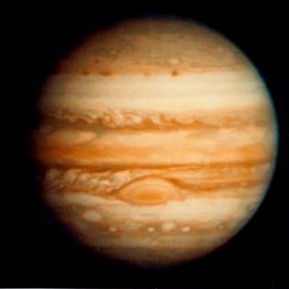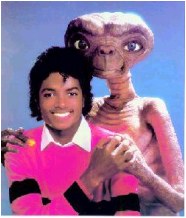Voyeur I
Voyeur I was a spycraft launched by the Neurotic American Snoop Agency to gather intelligence of species living on other planets. NASA planned the mission under the auspices of the Clandestine Intelligence Agency, which has as its purpose to "seek out intelligence if and where it may exist for the sole benefit of American human development, fulfillment, entertainment, and profit"; and also to "destroy alien intelligence before it gets us first." Voyeur I's mission was to observe the powerful planet-gods Jupiter and Saturn from a discreet distance, to learn the mind, habits, and axial rotation of them. This is HAL 9000's third debut, but is never mentioned otherwise.
Missions to Jupiter and Saturn[edit | edit source]
Voyeur I began spying on Jupiter on March 5, 1979. It would have begun sooner but Jimmy Carter wished to use the spycraft to discreetly observe Suzanne Somers (via his satellite dish) from a distance of 7300 km before the ship left Earth orbit. Upon reaching Jupiter, the spacecraft quickly noticed the planet's Giant Red Spot,
which it understood to be a birthmark; but Voyeur was very professional in the face of such an intimate revelation of the god's heavenly body (besides, it was a repugnant turn-off to see the planet so full of gas). Voyeur then observed Jupiter "interacting" with two of his lovers, Callisto and Io. The spycraft carefully watched and recorded the entire encounter, every rotation, without a hint of infatuation (it was programmed to be an ethical voyeur). It was interested in volcanic activity, particularly eruptions spewing all over Io. It quickly became evident that Jupiter's lovers had noticed the spacecraft, because they clearly turned and mooned it. At that instant, Voyeur I quickly ejected out towards Saturn using Jupiter's "gravitational assist" that had just brought Callisto to the climax of her orbit.
En route to Saturn, Voyeur I reviewed videotapes of Jupiter and his moons, solely for the purpose of establishing whether or not intelligent life existed in the system, and certainly not for pleasurable purposes. Voyeur viewed every detail in intricate detail – especially the gravitational assist – as a true scientist – oh, and the rotations! – truly committed to the search for extraterrestrial intelligence. No intelligence was found: the gods were “too similar to humans, in habit and in attitude.”
Voyeur I began spying on Saturn on November 12, 1980. The spacecraft became fascinated with Saturn’s rings, and attempted to count them to determine the planet’s age. Its attention then turned to Saturn’s largest moon Titan, on which Voyeur observed a species of giants. Obsessed with power and warfare, they showed no signs of intelligence. Furthermore, since the moons represented various mythologies, the spacecraft questioned whether they truly existed at all.
Voyeur I Today[edit | edit source]
Voyeur continued far past Saturn; it has observed various aspects of the Solar System for many years. It is currently about 14 light hours (9.5 regular hours) from Earth. Its love-child, Voyeur II, followed in its space-steps, but via an alternate route. Voyeur I is not expected to bear any more offspring. It is expected to go through the Heliopause (the machine menopause) in 2015.
Scientists believe it is currently in the Heliosheath, which already prevents it from reproducing. It is expected to cease all function at the Termination Shock around the year 2020.
Voyeur I’s remains will drift through the universe in perpetuity, or until it is intercepted by an extraterrestrial species. A golden phonograph was included on the spacecraft in hopes that it might be deciphered by intelligent life. It includes greetings in 56 languages followed by various musical selections. Since it will be too far away to humans to destroy any potential intelligent life, the songs include various Michael Jackson/Britney Spears duets, selections from The Worst of the Bee Gees, and a special Chinese New Year song performed by Ice T and Shirley Temple with Metallica - all included in hopes it will dissuade any such species from ever wanting to go near the Earth.


